Ricki Lewis

Why is it so difficult to find a treatment for Huntington’s Disease?
The Huntington’s disease (HD) community has recently experienced setbacks, but a new research report may reignite hope, from an unexpected ...

Is tilapia a human-made freak that we should avoid — or an evolutionary rockstar?
Posts were appearing on my Facebook feed warning against the dangers of eating tilapia. So I decided to do a ...
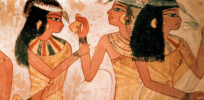
Nature’s lost scents: Perfumes made to replicate extinct plants provide an olfactory glimpse into the past
“Meet Invisible Woods: a clean, refreshing scent revived from extinct flower DNA,” beneath an image of “origin flower” Wendlandia angustifolia ...
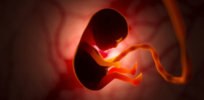
Gametes? Embryo? Fetus? There are 17 timepoints when a human life might begin
I wish that I could stop reposting this essay – I do so whenever limitations on women’s reproductive rights become ...
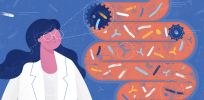
Probiotics are ‘enticing target’ for gene editing — but is CRISPR up for the challenge?
Every morning I pop a Pearl probiotic. I try hard not to drop it, for the tiny, slippery yellow sphere ...
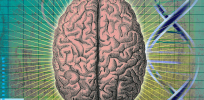
Is Alzheimer’s disease transmissible?
Five people treated for pituitary dwarfism decades ago with human growth hormone (hGH) pooled from cadavers have shown cognitive decline ...

Biological exceptionalism: How two Italian sisters lived to 100
In my endless email about COVID-19 popped up a new paper analyzing the health of two Italian sisters who lived ...
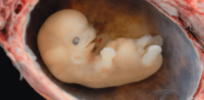
Filling the gaps of what we know about the first days and weeks of the developing human embryo
Several recent reports are filling in the gaps of what we know about the earliest days and weeks of human ...
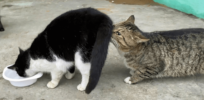
Nether region science—What’s the allure for cats of fellow feline rear ends?
Anyone who lives with more than one member of Felis catus knows that our beloved felines love to smell each other’s ...
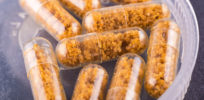
Here’s the straight poop about fecal transplants
Fecal transplants carry a certain ick factor for many people. But there is a legitimate medical use for them -- ...
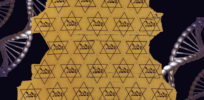
On the anniversary of Kristallnacht, as the Israel-Hamas War rages, a DNA data leak of Jewish 23andMe customers raises fears of modern-day Jewish yellow badges
Tonight is the 85th anniversary of Kristallnacht, “The Night of Broken Glass.” On November 9 and 10, 1938, Storm Troopers, ...
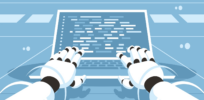
Will AI make biology textbook authors redundant? Here’s one author’s view of ChatGPT
I just used ChatGPT for the first time. Initially, I was concerned about my future as the chatbot near-instantaneously answered ...

How octopi can edit their own RNA to rapidly respond to environmental changes
How organisms rapidly respond to a challenge: For an octopus, that might be a sudden plunge in water temperature, which ...

Perpetuating the ‘nerd’ stereotype: Why I won’t watch Apple TV+’s ‘Lessons in Chemistry’
Lessons in Chemistry, set to debut on Apple TV+ October 13, is based on the best-selling 2022 novel by Bonnie ...
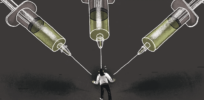
Natural selection, artificial selection, and now political selection: How vaccine rejectionism is altering the course of evolution, and not in a good way
“A sharp partisan divide remains over new Covid boosters,” reads the headline announcing a recent poll from Politico, as respiratory ...

What do ‘non-identical’ identical twins have to do with COVID-19? Mutations!
Identical twins Stella and Desiree Vignes were born in 1938 in a Louisiana town so small that it wasn’t on ...
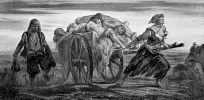
‘The single most notorious killer of humans’: What are the true origins of the 14th century Black Plague?
It’s rare that compelling clues converge to illuminate a longstanding medical mystery: the origin of the Black Death, a bubonic ...
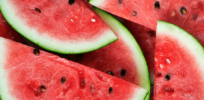
Sequencing the watermelon family tree reveals ‘lost’ disease-resistance genes that were bred out generations ago
As autumn looms, we’re enjoying the last bites of sweet, juicy watermelon ...
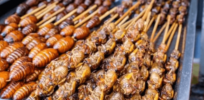
Meet the beetles: Mealworms could be a food of the future
I have a special fondness for the yellow mealworm, Tenebrio molitor. As a child, I fed the mealworm stage of ...
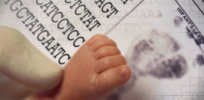
7,000+ rare diseases remain untreatable. The genetic revolution and federal research funding offers hope for cures, but vaccine hesitancy and a lack of newborn screening pose hurdles
There are an estimated 7,000 known rare diseases affecting 30 million people; for 95% of them, there are no treatment ...
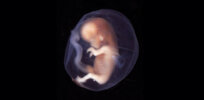
Revelations from the embryo: Glimpses into the prenatal period
Two weeks after sperm fertilizes egg is a critical time in human prenatal development. Intricate waves of signals stamp cells ...
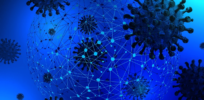
How COVID can lodge itself in our brains
As the fourth year of the pandemic dawns, a study published in Nature from Daniel Chertow, MD, MPH, head of ...
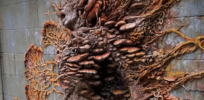
Why did Ellie in the Last of Us not succumb to Cordy, the zombie virus? Stem cells might explain it, and that could yield real-life vaccines
It’s unsettling to watch The Last of Us, in which parasitic fungi turn humanity into flesh-eating zombies, just as the ...

Faith genes? Can DNA predispose us to religion and spirituality?
Do our genes predispose us to follow a religion? I searched Google Scholar for reports on the inheritance of religiosity ...

Viewpoint: Why health care based on race is so problematic
Choosing a medical treatment based on patient traits historically used to define races is fundamentally flawed, because race in the ...
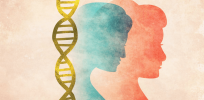
Genomic scars: How centuries of surviving antisemitism has shaped Jewish genetics
Between election news and the ever-earlier encroachment of Christmas, an important November anniversary of a horrific event goes mostly unnoticed: ...
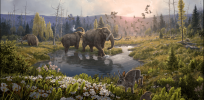
How might we adapt to fast-changing global temperatures? 2-million year old ‘environmental DNA’ offers clues
The reconstruction of a once-living landscape in northern Greenland from 2 million years ago, deduced from bits of DNA bound ...
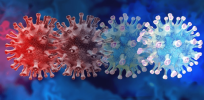
Can we know for sure COVID’s origins? Why is Omicron so persistent? Knowing how evolution works provides guidance
The latest phrase borrowed from biology in COVID conversations is convergent evolution. It refers to pairs of unrelated species that ...

